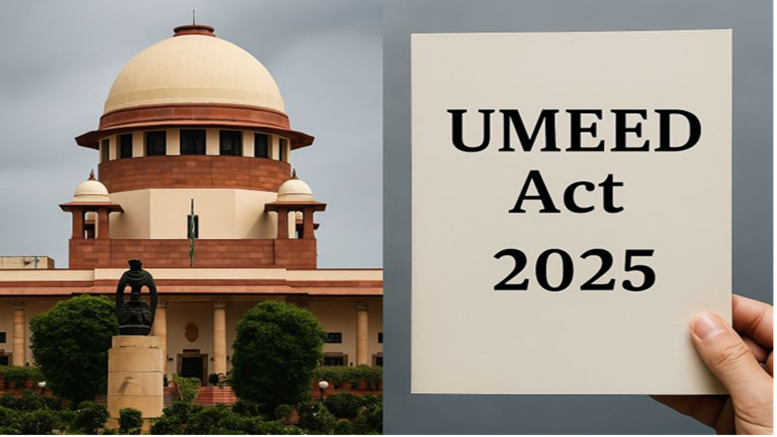- Courses
- GS Full Course 1 Year
- GS Full Course 2 Year
- GS Full Course 3 Year
- GS Full Course Till Selection
- Online Program
- GS Recorded Course
- NCERT (Recorded 500+ Hours)
- Polity Recorded Course
- Geography Recorded Course
- Economy Recorded Course
- AMAC Recorded Course
- Modern India, Post Independence & World History
- Environment Recoded Course
- Governance Recoded Course
- Science & Tech. Recoded Course
- International Relations and Internal Security Recorded Course
- Disaster Management Module Course
- Ethics Recoded Course
- Essay Recoded Course
- Current Affairs Recoded Course
- CSAT
- 5 LAYERED ARJUNA Mentorship
- Public Administration Optional
- ABOUT US
- OUR TOPPERS
- TEST SERIES
- FREE STUDY MATERIAL
- VIDEOS
- CONTACT US
Warning Against Illegal Payment Gateways: I4C
Warning Against Illegal Payment Gateways: I4C
04-11-2024
- On October 28, 2024, the Indian Cybercrime Coordination Center (I4C), under the Ministry of Home Affairs (MHA), issued an alert regarding illegal payment gateways created using mule bank accounts.
- These operations are linked to transnational organized cybercriminals engaged in facilitating money laundering as a service.
- Transnational organized cybercriminals are groups that operate across borders, leveraging technology to commit crimes and evade law enforcement.
- They engage in a range of cybercrimes, including financial fraud, data breaches, and the facilitation of illegal money transfers.
- Recent raids by law enforcement agencies in Gujarat and Andhra Pradesh have found these illicit activities, which exploit vulnerable financial systems for criminal gain.
Key Findings from Recent Raids:
The Gujarat Police and Andhra Pradesh Police have conducted significant operations, leading to the filing of FIRs (First Information Reports) related to these illegal activities.
- Gujarat FIR: 0113/2024
- Andhra Pradesh FIR: 310/2024
Operation Mechanism:
- These mule account accounts facilitate illegal transactions and money laundering by using Illegal Payment Gateways:
- A mule account is a bank account used to move money around for criminals, often as part of money laundering:
- How it works : Criminals deposit funds into a mule account, and then instruct the mule to move or withdraw the money.
- The mule might move the money to another account or withdraw it as cash to deposit elsewhere
- Creation of Illegal Payment Gateways:
- Illegal payment gateways are established using these mule accounts.
- These gateways are provided to criminal syndicates for receiving funds from various illegal platforms, including:
- Fake investment scams
- Offshore betting and gambling sites
- Fake stock trading platforms
- They play a major role in online financial scams.
- Around 50% of cybercrime complaints in India link back to entities in China.
- Other significant sources include Cambodia and Myanmar.
Identified Payment Gateways:
- PeacePay
- RTX Pay
- PoccoPay
- RPPay
These gateways are reportedly operated by foreign nationals and serve as conduits for money laundering.
Economic Impact:
- Cyber scams represent a serious risk to the economy.
- They can lead to significant capital outflows and contribute to threats like terrorism financing and money laundering.
- A notable case involved ₹5.5 crore in cryptocurrency being laundered through an international crypto exchange via over 350 transactions.
Financial Fraud Statistics:
- From January to June 2023, reported losses from financial fraud reached ₹11,269 crore.
- The MHA’s cybercrime portal and helpline work with state police and over 200 financial intermediaries, indicating that many fraud cases go unreported.
Global Context:
- The I4C has identified 18 ATM hotspots in India where fraudulent cash withdrawals have taken place.
- Some of these withdrawals have links to international ATMs in locations like Dubai, Hong Kong, Bangkok, and Russia.
- Areas in Southeast Asia, especially Cambodia, Myanmar, and Laos, are known hubs for investment scams.
- These scams often resemble call centers where fraudsters operate using Indian mobile numbers.
Government Response and Solutions:
- The MHA plans to hold discussions with the Union Finance Ministry and the Reserve Bank of India to devise strategies against mule accounts.
- Banks are urged to keep a close eye on unusual transactions, especially in accounts with low balances or those belonging to salaried individuals.
- Banking systems should be enhanced to detect multiple logins from a single IP address, especially if that IP is from outside India, and alert the authorities.
- It is essential to implement alert systems for sudden changes in transaction volume and frequency to identify potential fraud early.
Advisory from I4C:
- Citizens are strongly advised not to sell or rent their bank accounts or business registration certificates, including:
- Company registration certificates
- Udhyam Aadhaar Registration certificates
- Allowing illicit funds to be deposited in personal accounts can lead to severe legal consequences, including arrest and prosecution.
- Immediate Reporting: Citizens must report any suspicious activities or cybercrimes using:
- Helpline number: 1930
- Website: www.cybercrime.gov.in
- Follow CyberDost on social media for updates and guidance on cyber safety.
- Banks are encouraged to implement checks to identify any misuse of bank accounts associated with illegal payment gateways.
About I4C: Indian Cybercrime Coordination Centre
Key Focus Areas
Establishment
Background
Objectives of I4C
|


![img-PSYCHOLOGICAL WARFARE [PSYWAR]](https://i.filecdn.in/755esias/PSYCHOLOGICALWARFAREPSYWAR-1747206772505.jpg)

